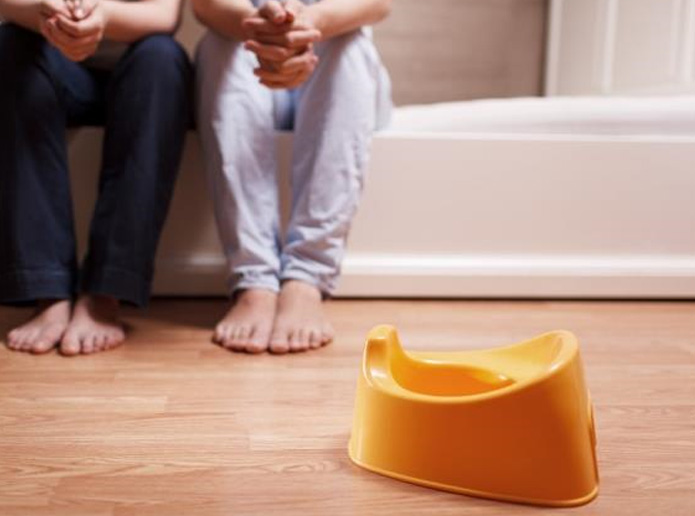Did you know that learning to use the toilet is a developmental and self-care skill? During early childhood, learning this skill gives children more independence than almost any other skill they will learn during the early years.
Toilet education
In theory, children could be ready for toilet education as early as two years of age. Most children of this age recognise the urge to urinate or defecate and can control the sphincter muscles that facilitate waste elimination. Before this time, infants are simply unable to physiologically monitor and to control waste removal from their bodies.
The average age for successful toilet education is three years of age.
If your child is experiencing a significant change to the family environment, such as a new baby arriving, moving house, or starting child care, try and delay commencing toilet education. Staying dry all night may also take some extra time.
Signs of readiness
Your child might be ready to begin toilet education if:
- their nappy is staying dry for longer periods (about 2 hours at a time)
- they are aware that they have had a bowel motion in their nappy
- they are aware that they are uncomfortable when wet or dirty
- they have an interest in the toilet, and tries to copy other’s behaviour
- they can label some of their body parts
- they have a bowel motion at a similar time each day
- their bowel motions are generally of a firm consistency
- they can sit still for short periods of time
- they are able to follow simple instructions
Every child is unique, it is not a race!
Toilet education is a part of your child’s learning and developmental journey.
What you can do to help
- Prepare the environment. Is the toilet too far away from the play or living area? Is there enough light? Some children are fearful if the toilet is very dim.
- Decide whether you will be using a potty, or the toilet. If you are using the toilet you may need a small step (this can be purchased at any baby shop or department store).
- Reading a book together on using the toilet can be a helpful reference for your child and helps to take some pressure off them.
- Ensure your child is wearing clothes that are easy to remove. Being able to remove clothing quickly is essential as they are usually in a hurry to go.
- Explain in simple words to your child what they need to do. How much paper to use and how to wipe themselves. Flush the toilet and wash their hands after each time.
- Purchase “grown up” undies and lots of them! Make it a special and exciting shopping trip together.
- Children learn new tasks in small steps and each step can be praised. Don’t wait until they can do the whole task properly before praising them.
- Remember as part of toilet education, your child should be encouraged to practice good hygiene. Remind your child to wash and dry their hands each time they use the toilet – this should still be completed if you have not had a success.
Toilet education takes time and patience
Being positive for your child is the most helpful thing you can do for them at this stage.
Coach, praise and encourage. Saying “Did you know you could do that?” or “You look very happy that you did that!” conveys a sense of achievement and self-satisfaction.
Your child needs to be praised when they accomplish successful toileting, but they should also be encouraged for trying. Recognise their efforts – “Well done for trying to get to your potty” – even if they are a bit late.
If you are constantly battling to get your child on the toilet, they are simply not ready. If that is the case, stop everything and try again in a few months.
Want to know more?
Raising Children Network – Toddler daily care: Toileting
Pregnancy Birth and Baby – Toilet training
If you still have questions, contact our Parenting Line
